EDUCATION
Closure of schools for Ramadan unIslamic: says Chief Imam

The National Chief Imam of Al-Habibiyyah Islamic Society, Imam Fuad Adeyemi, has criticized some northern state governments—Bauchi, Katsina, Kano, and Kebbi—for closing schools for five weeks during Ramadan.
During an interview on Inside Sources with Laolu Akande, a socio-political program on Channels Television, Adeyemi expressed concerns that this decision goes against the teachings of Islam. He believes Ramadan should be a time for devotion and hard work, not a break from learning. He said, “I see this as a political move. The heat here is not as intense as in Saudi Arabia, and during fasting, there are many activities that continue.”
Adeyemi shared a historical example to illustrate the strength expected during Ramadan. He mentioned the migration of Muslims from Mecca to Medina, where they faced a war led by the Arabs who wanted to eliminate Islam. The Arabs had about 1,000 armed soldiers, while the Muslims had only 213 without military weapons. Despite fasting, they fought and won.
“The point I want to make is that Ramadan is a serious time for Muslims,” Adeyemi said. He also shared his own experiences, stating, “When I was in high school and university, any exam I had during Ramadan, I would perform well because I could focus. Ramadan helps you concentrate.”
He strongly opposed school closures during Ramadan, saying, “I do not support closing schools. It does not reflect the values of Islam. This is the first time I have heard of a holiday during Ramadan. Why? You need to work. Even on Fridays, Islam does not ask people to close their shops; it says to work and close only for prayers, then return to work. Islam provides rules; you cannot just create new ones.”
This decision to close schools has sparked debate, especially in areas where poverty and low literacy are major issues. The Christian Association of Nigeria (CAN) criticized the move, calling it unfair and harmful to students’ rights. CAN said that closing schools during Ramadan could make educational problems worse, referencing UNICEF data that shows 18.3 million children out of school in Nigeria as of 2024.
The controversy continues, with religious leaders and education advocates urging policymakers to rethink the effects of long school breaks on students’ futures.
EDUCATION
WAEC Unveils Revised Results, Admits Discrepancies Were Disturbing

The West African Examinations Council (WAEC) in Nigeria has published its reviewed results for the 2025 West African Senior School Certificate Examination, acknowledging that grading errors adversely impacted candidates’ performance data.
During a press conference held on Friday at the council’s national headquarters in Yaba, Lagos, Dr. Amos Dangut, the Head of WAEC Nigeria, referred to the situation as “disturbing” and extended an apology to all parties involved.
“With deep regret, I, on behalf of the Registrar, the Management, and Staff of WAEC Nigeria, apologize for the discrepancies found in the grading of serialised papers. It’s challenging to address this, but we must acknowledge that it is very embarrassing,” Dangut stated.
He clarified that these discrepancies stemmed from an error in marking serialised papers caused by an incorrectly assigned serialisation code file. The subjects that were affected included English Language, Mathematics, Biology, and Economics.
According to Dangut, WAEC had implemented a new security measure called paper serialisation, which was also adopted by another examination body. However, a review post-examination revealed that the English Language Objective Test (Paper 3) was assessed using incorrect answer keys.
“We investigated and found that a serialised code file was used incorrectly in printing the English Language Objective paper, leading to the use of wrong marking keys. Importantly, candidates who took the exams via the computer-based mode were unaffected,” he added.
After rectifying the issue, it was reported that 1,794,821 candidates, accounting for 91.14 percent, achieved credit or above in at least five subjects (whether or not including English and Mathematics). Out of these, 1,239,884 candidates, or 62.96 percent, secured five credits including English and Mathematics, showing a notable increase from the earlier reported 38.32 percent.
Among these successful candidates, 657,819 (53.05 percent) were female, and 582,065 (46.95 percent) were male. However, this performance still indicates a 9.16 percent decline compared to the 72.12 percent recorded in 2024.
WAEC reported that a total of 1,969,313 candidates participated in the examination, including those from schools in Benin Republic, Côte d’Ivoire, and Equatorial Guinea, which follow the Nigerian curriculum. The council also managed 12,178 candidates with special needs, including the visually impaired (112), hearing impaired (615), physically challenged (37), and those with spastic/mental challenges (52). Their results have also been processed and released.
“All these candidates received appropriate support during the exam administration,” Dangut stated.
While 1,763,470 candidates (89.55 percent) had their results fully processed, 205,916 (10.45 percent) still have pending subjects due to technical issues. WAEC assured that efforts are in place to finalize and release the outstanding results soon.
Additionally, results for 191,053 candidates (9.7 percent) have been withheld due to allegations of examination malpractice, showing a decrease from the 11.92 percent recorded in 2024. Ongoing investigations will continue, and affected candidates are encouraged to file complaints through waecinternational.org/complaints.
“WAEC will persist in taking action against all instances of examination malpractice. Everyone must collaborate to uphold the integrity of the system,” Dangut cautioned.
Candidates are encouraged to verify their results through the official portal www.waecdirect.org and apply for their digital certificates, expected to be available within 48 hours after verification. Hard copy certificates will be ready in 90 days.
Dangut also noted that candidates sponsored by indebted state governments would be unable to access their results until the dues are settled.
“We urge the relevant authorities to take necessary actions to enable the impacted schools and candidates to retrieve their results,” he expressed.
Extending his sincerest apologies to stakeholders, Dangut remarked, “We understand the emotional distress that candidates, parents, teachers, school administrators, Ministries of Education, and the media have experienced. This is a challenging period for us at WAEC, and we are committed to ensuring that such a situation does not arise again.”
WAEC expressed appreciation to the Federal Government, the Minister of Education, and state education bodies for their support throughout the review and resolution processes.
EDUCATION
JAMB Prosecutes 110 for UTME Fraud in Five Years
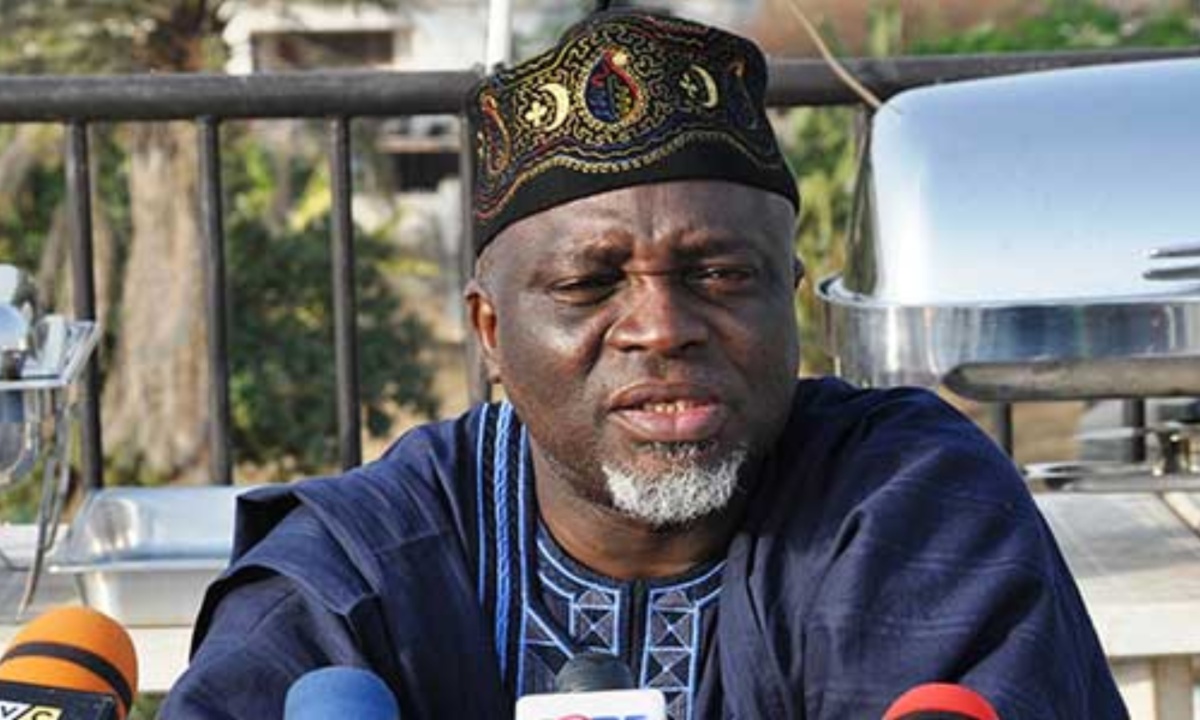
In the last five years, more than 40 individuals have been brought to trial in various courts across the country for engaging in examination malpractice during the Unified Tertiary Matriculation Examination (UTME), as revealed by the Joint Admissions and Matriculation Board (JAMB). The board also announced that over 70 people were successfully prosecuted from 2019 to 2024, with more than 10 individuals securing convictions during this timeframe.
In an effort to combat fraudulent activities, JAMB introduced the Computer-Based Test in 2015, which aimed to minimize such practices. Since then, numerous individuals who tried to exploit the board’s surveillance system have been apprehended and taken to court.
In January 2021, JAMB indicated in its weekly bulletin its intent to partner with security agencies to pursue legal action against any candidates or institutions violating its admissions regulations. The board emphasized that strict measures, including legal prosecution, would be enforced against any offenders once sufficient evidence was established.
During a management meeting, JAMB’s Registrar, Prof. Is-haq Oloyede, highlighted that various initiatives had been implemented to address admission infractions. He pointed out that while the Central Admissions Processing System has enhanced the transparency and fairness of the admissions process, some individuals still attempted to bypass the system.
“The board maintains a zero tolerance policy towards corrupt practices and will not stand idly by while dishonest individuals disrupt our advancements. To protect the achievements of the CAPS initiative and ensure accountability for those who violate government regulations, arrangements have been finalized with relevant security agencies. These agencies are prepared to prosecute any candidate, stakeholder, or admissions officer found guilty,” he stated.
Furthermore, during its policy meeting on July 8, 2025, JAMB revealed that in 2019, over 200 candidates were apprehended for various violations, including falsifying results. Recently, the board announced preparations to prosecute more than 60 individuals involved in misconduct during the 2025 UTME.
Speaking to The PUNCH in Abuja on Wednesday, JAMB’s Public Communication Adviser, Dr. Fabian Benjamin, affirmed that in the last five years, more than 70 individuals have faced successful prosecution, with an additional 40 currently undergoing trial in different courts nationwide. “We have also obtained numerous convictions within the same period. These efforts are part of JAMB’s determined resolve to eradicate corruption and other forms of examination malpractice in the UTME,” he stated.
The nation’s examination oversight body reported a significant decrease in corruption and exam malpractice within its Computer-Based Tests across the country. Over the past five years, JAMB has consistently documented arrests and prosecutions related to exam malpractice and irregularities, particularly during the UTME.
EDUCATION
NDLEA, FME agree on drug education in school curriculum, test for varsity students, others

-As Marwa meets Alausa for collaboration on war against substance abuse
Compulsory drug integrity test for students of tertiary institutions and the review of current secondary school curriculum to include drug education are part of agreements reached between the National Drug Law Enforcement Agency and the Federal Ministry of Education when the NDLEA Chairman/Chief Executive, Brig Gen Mohamed Buba Marwa (rtd) led a delegation of his management team to a meeting with the Hon Minister of Education, Dr. Maruf Olatunji Alausa in Abuja on Wednesday 30th July 2025.

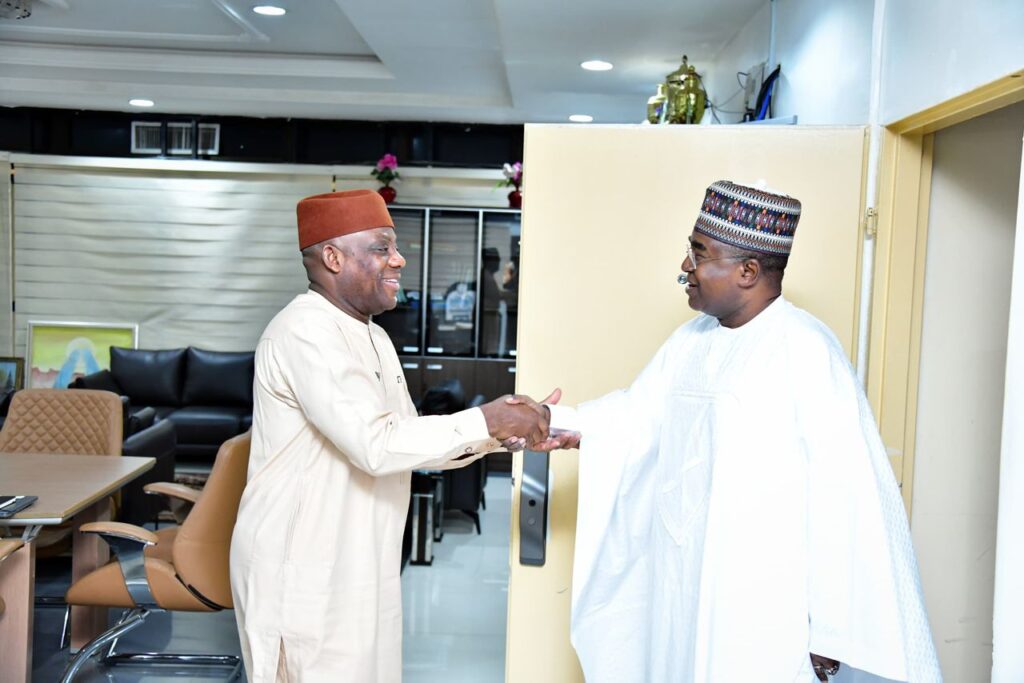
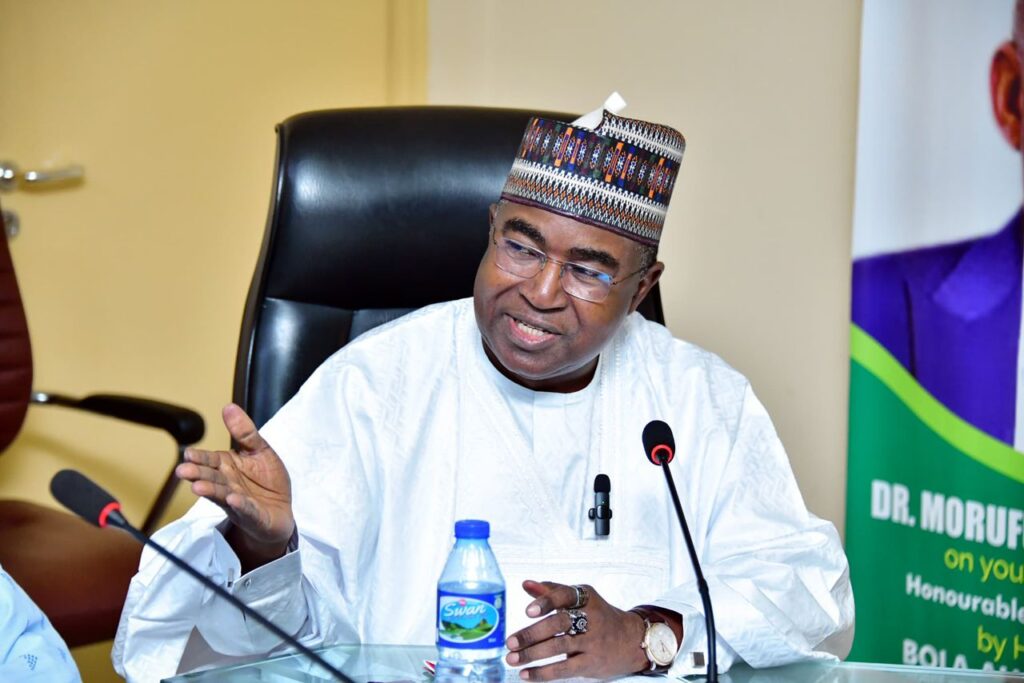
Marwa had during the meeting commended the minister for his proactive approach to his job while highlighting the devastating effect of substance abuse on the country’s youthful population. He noted that the fight against illicit drugs is a fight for the souls of the Nigerian youth.
“The purpose of this visit is to seek collaboration with this esteemed ministry in our collective efforts towards drug control in Nigeria. Our focus basically will be on schools and educational institutions. There are millions of our children that are under the supervision of this ministry, and it’s very critical. The drug scourge, as we all know, is very high in Nigeria.
So, we’re actually fighting for the souls of our children. Now, we also know that the drug use is exacerbating criminal activities. That is, the Boko Haram, the terrorism, banditry, and so on.

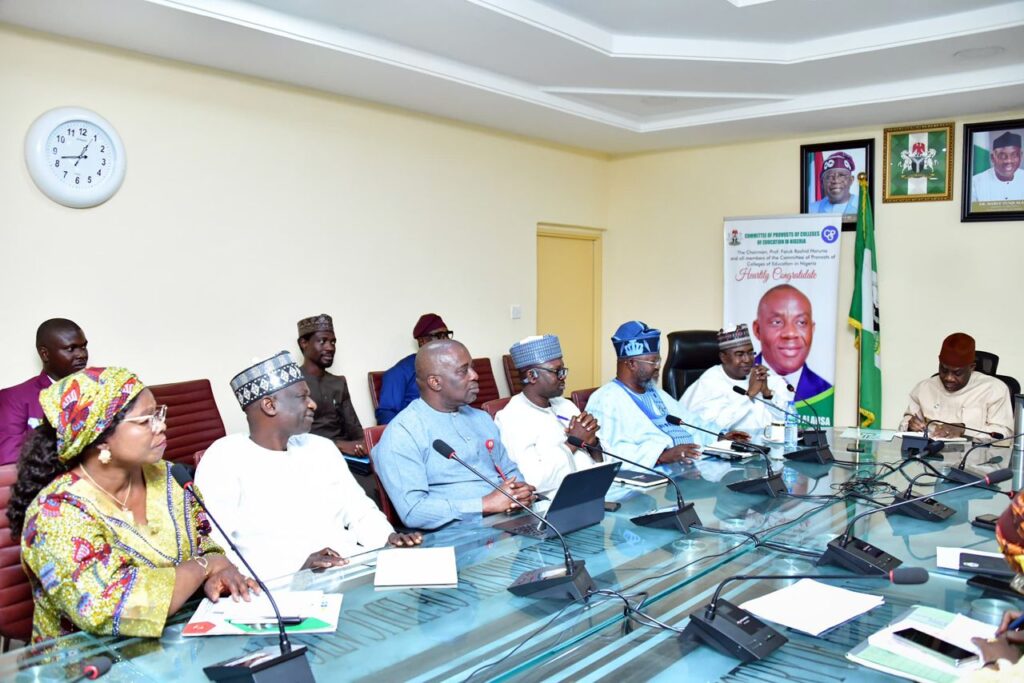

“We know that without drugs, they wouldn’t be able to do what they are doing, because they wouldn’t do all these criminal activities in their right senses. So, in our own way, we are contributing to the fight against insecurity in the country. Now, through law enforcement action, we have continued to deal mortal blows to the drug cartels. We know that through the seizures, arrests, convictions, and assets forfeiture, we’re doing our best.
“Supported by President Bola Tinubu, within the last two years, we have made arrest of 40,887 criminal elements, gotten 8,682 convicted and seized 5,507 metric tons of illicit drugs. In fact, from January last year to the present, opioids, that’s tramadol mostly, that we have seized, are in excess of one billion pills, which is worth more than N1 trillion.”
While stating that the President is also supporting the Agency to build seven rehabilitation centres in addition to the existing 30 centres in NDLEA commands nationwide, Marwa noted that President Tinubu has also approved the construction of one model rehab centre in each of the geo-political zones in the country.
He listed three key areas he will want the Ministry and NDLEA to collaborate to effectively check the menace of substance abuse among Nigerian youths.
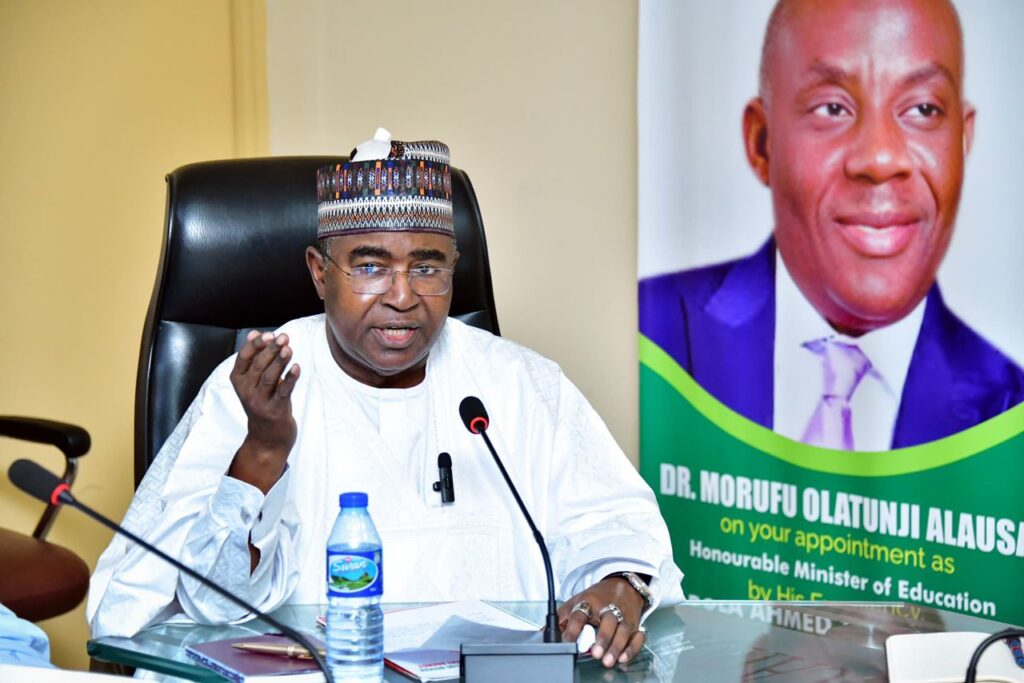
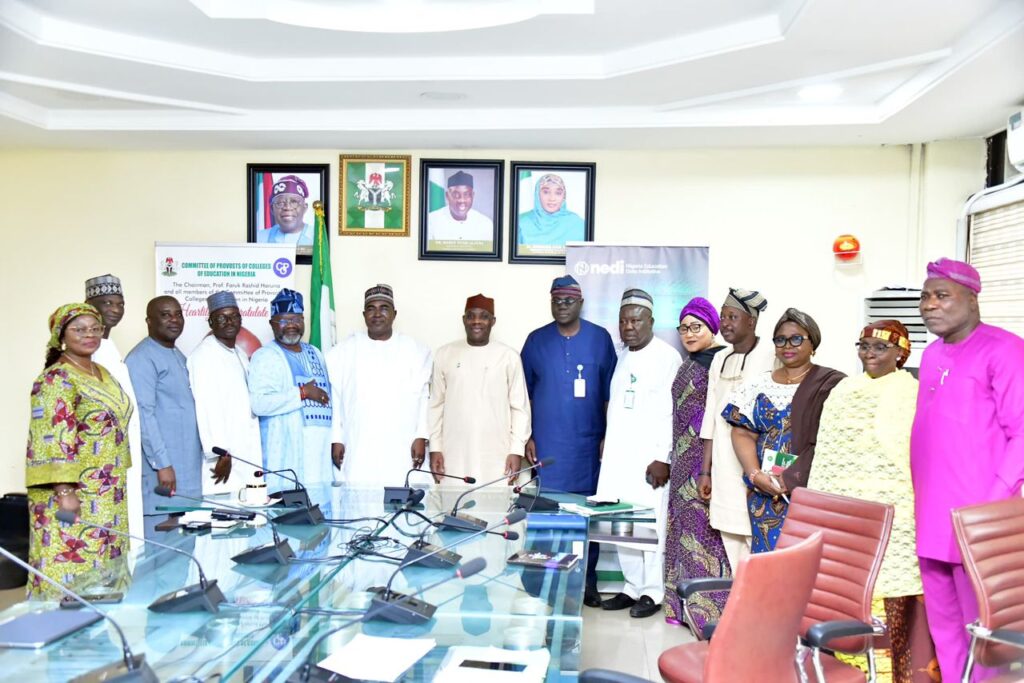
According to him, “the first suggestion we have is for a review of the drug education curriculum in secondary schools. Even though we’re told of the existence of this in the past but because of the complexity of drugs, the dynamism of it, and the new psychoactive substances that have come to play, we feel that it is time to consider a review of this drug education curriculum.
“Another area we were thinking of suggesting is to introduce stand-alone drug abuse prevention programmes in schools, secondary schools. Not the curriculum this time, but programmes that stand on their own, lectures, competitions, and involving the parents, and so on. And then the third area we were thinking is to adopt a drug testing policy in tertiary institutions, because we want a policy to keep our campuses clean.
Several vice chancellors have come on their own to seek both our guidance and participation in conducting drug test for their students. So, what we are suggesting now is drug tests for new students, for students returning from vacations, and random tests. This will make the children to avoid taking drugs, knowing fully well that if they do and they are found out, there will be consequences. And the consequences do not necessarily mean rustication.”
In his response, the Minister commended Marwa for his steadfastness and commitment to the service of Nigeria. “Thank you for your service to Lagos. And beyond that, General Buba Marwa, has committed his life to serve this country. Since I know him 30 years ago, he’s still serving the country. And you could see the passion in the way that he laid out the problems in the country and what he wanted us to do. And as he was talking, I made note and it was as if I had seen his prepared comments. Thank you so much for making this visit.” He noted that the drug scourge is a huge problem that must be tackled headlong.
“When the youths get into drugs, they won’t go to school and even when they go to school, they are not getting functional education. And at the end of the day, what happens? Their level of critical thinking is lower. Their ability to make informed decisions in the later part of their life becomes significantly reduced. So, they become unemployable. And what happens? You now have that vicious cycle. They’re not functional. They’re not useful to themselves. All they do is resort to criminality. Once you use drugs, you’re likely to have a dysfunctional family. So, it’s a huge menace that we need to tackle, and tackle very quickly.”
Talking about the areas of collaboration, the Minister said “I would suggest we form a technical working group, inter-ministerial working group between our ministry and NDLEA.
As a result, I will also like to create a Substance Use Prevention Unit in the ministry. “We’re reviewing the curriculum now for secondary school. And that’s why I’ve asked the director of Senior Secondary School to come, to be here and then we find a way to cascade it down to primary school. But we need to get both primary school and secondary school and add this to their curriculum. But the one for secondary school, we can definitely do that now. We’re just developing their new curriculum now.
“Also, on the stand-alone school programmes, I agree with you fully. We should also design ongoing programmes in our schools. That we can roll out, and cascade down. You also said something very important about the drug test policy in tertiary institutions. We will do it.
We have to do it. We do not have a choice. At least, we’ll start with tertiary institutions, for their fresh and returning students as well as random testing.”
The Minister also assured on getting two agencies under the Ministry, UBEC and TETFUND to partner with the NDLEA Academy in Jos as part of efforts to deepen drug education in basic, secondary and tertiary institutions across the country.
Following the Minister’s directive, the Permanent Secretary in the Ministry, Mr. Abel Oluwamuyiwa Enitan, announced the take-off of the new Substance Use Prevention Unit while giving the vote of thanks.
Femi Babafemi
Director, Media and Advocacy
NDLEA Headquarters Abuja
Wednesday 30th July 2025
-

 News10 months ago
News10 months agoNUJ FCT Council Mourns The Loss of Senior Journalist, Isaiah Abraham
-

 News10 months ago
News10 months agoHURIWA Declares Governor Fubara’s Emergence as Divine, Urges Support for Rivers State’s Progress
-

 News10 months ago
News10 months agoAnioma State as panacea to South-East marginalization – By Emmanuel Onwubiko
-

 Opinion8 months ago
Opinion8 months agoNIGERIAN WOMAN IN DIASPORA, CULTURAL SHOCKS – By Stacey Ukaobasi Onwuegbuchulam
-

 News11 months ago
News11 months agoHURIWA Blames Serial Stampedes on Weaponized Poverty, Warns of Nigeria’s Rapid Decline
-

 News10 months ago
News10 months agoJealous Husband Stabs Nigerian Bishop To Death Over Suspicion Of Sleeping With Estranged Wife
-

 News10 months ago
News10 months agoTinubu sympathizes with ex-speaker Bankole on the death of his mother
-
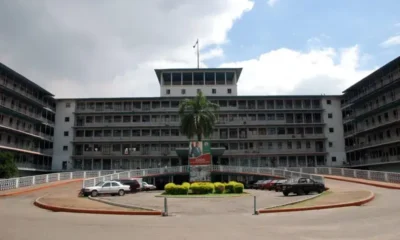
 Health8 months ago
Health8 months agoA complete list of 154 healthcare facilities across Nigeria that provide free emergency obstetric care and VVF (Vesico-Vaginal Fistula) surgeries.

